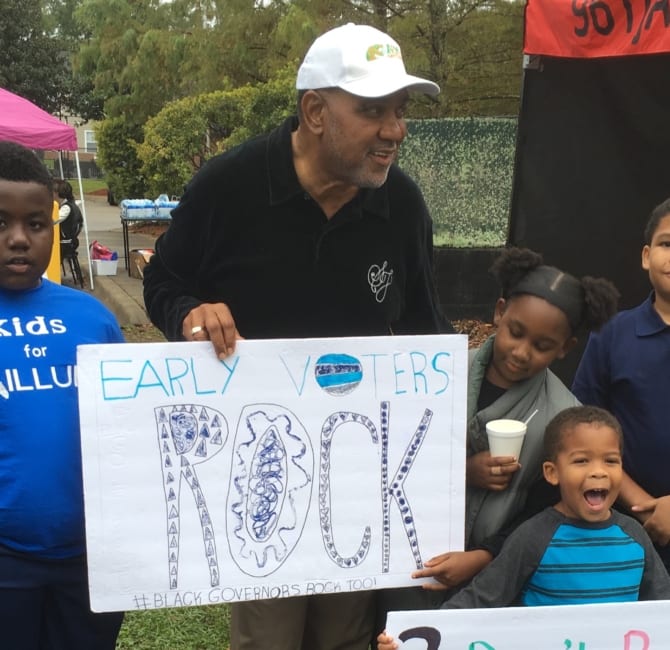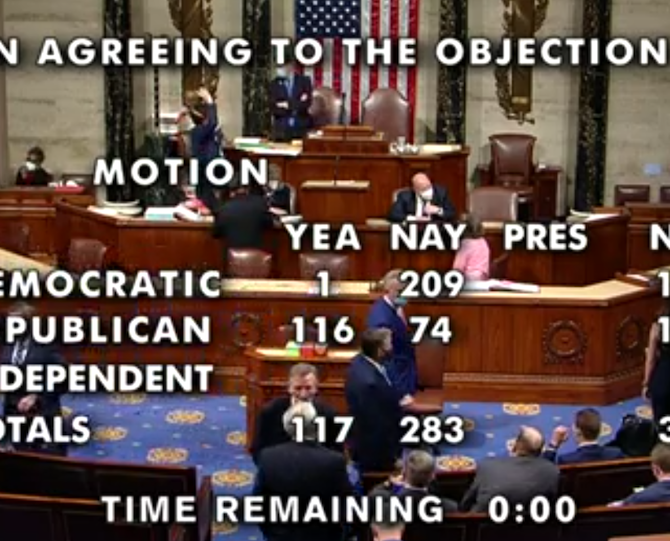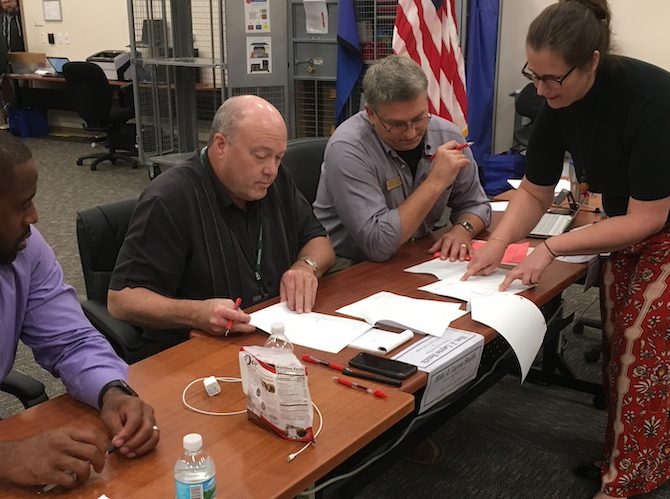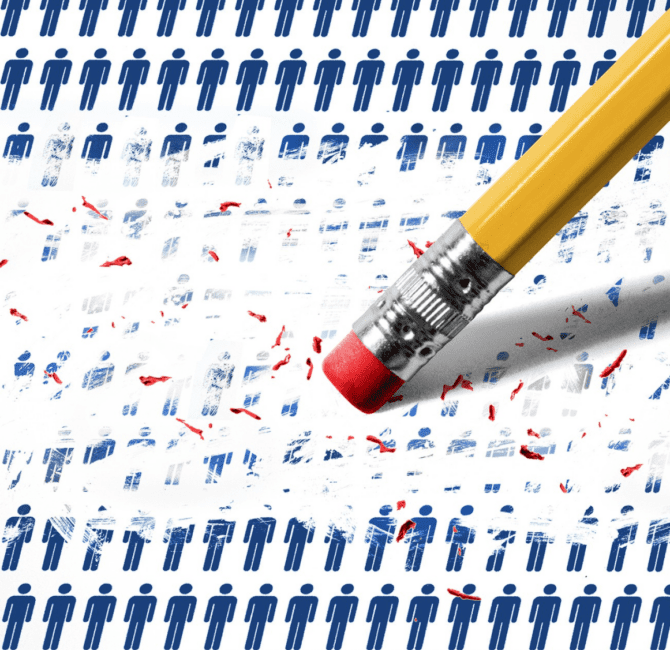Strong Signs that Judges Will Increasingly Decide How 2020 Elections Are Run During the Coronavirus Pandemic
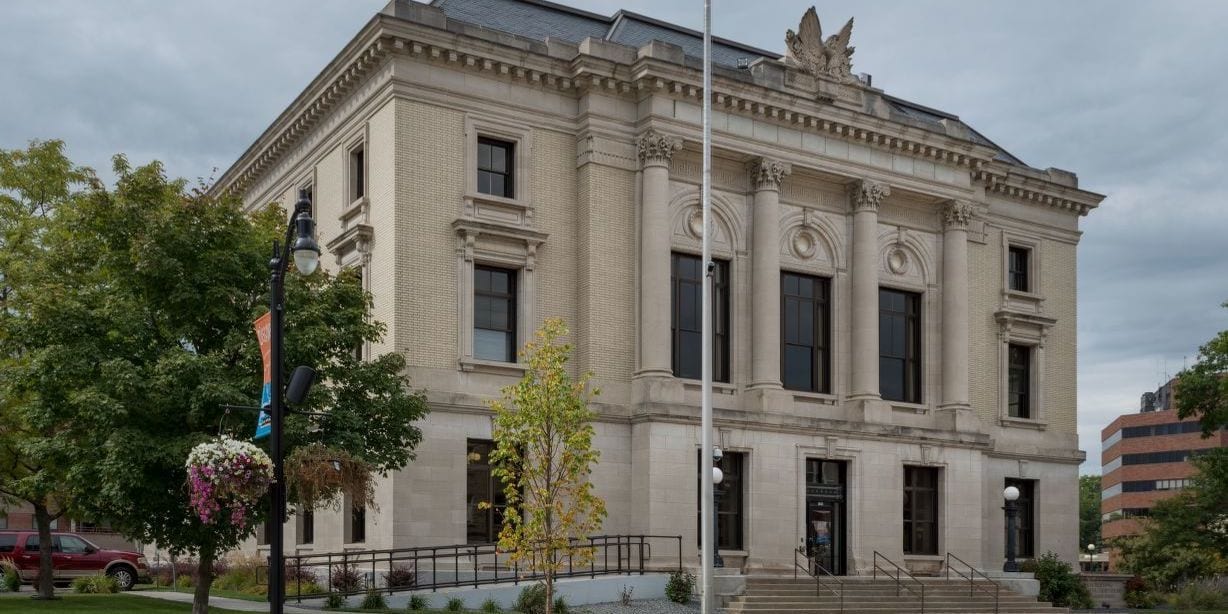
(Photo credit / U.S. Library of Congress)
The jaw-dropping conclusion of a federal court hearing on April 1 about Wisconsin’s statewide elections on April 7 was no April Fools’ joke. U.S. District Judge William Conley said the state’s Democratic governor and Republican-led legislature had failed to put their citizenry’s health first by not postponing the statewide election in a pandemic.
“There’s a hurricane coming!” Conley fumed from the bench, interrupting Douglas M. Poland, a lawyer representing the Wisconsin Alliance for Retired Americans, League of Women Voters of Wisconsin and four citizens who sued the state. “You can’t even give me a case where a federal judge stopped a state from stupidly holding an election when most of the voters were not going to go to the polls because there’s a hurricane coming!”
“You expect the state of Wisconsin to realize that this is a hurricane and for them to stop it for public health reasons,” Conley continued. “But you don’t get to go to a federal judge and say it is contingent on voting rights, so you get to stop a statewide election. The reason you can’t cite me a case is because it’s not appropriate. I’m sorry that that’s what the situation is. But this is a public health crisis that the state legislature and the governor have refused to accept as severe enough to stop this statewide election.”
It is not very often that a federal judge slams a state’s executive and legislative branches from the bench before issuing a ruling. But below the headline-grabbing pronouncement are equally serious concerns that will resurface in federal and state courts between now and the 2020 general election. Those concerns are how far can a court go — federal or state — to change the means and rules of voting.
Wisconsin was the only state of 11 slated to hold statewide elections in April that did not change its plans. That decision, in part due to Republican legislators wanting to boost the GOP’s odds of winning a state Supreme Court race, sparked three lawsuits. One sought to postpone the election. A second sought to ensure that all absentee ballots that were postmarked by April 7, but arrived in the mail days later, would be counted. The third sought to suspend a state law requiring all absentee voters to have a witness sign their ballot.
Judge Conley’s eruption from the bench concerned Wisconsin political leadership’s irresponsibility for not postponing an election in an unforeseen public health crisis, where the first wave of coronavirus cases is cresting on Election Day and its aftermath — where more than1.1 million paper absentee ballots have to be authenticated, duplicates removed and counted.
But the other two lawsuits before the court are more relevant for the rest of the 2020 election cycle, as the issues they raise dig into the fine print of policies that state legislatures have adopted and voting procedures that government election bureaucracies subsequently have issued concerning voters and voting by mail.
“What is emerging is a hodgepodge of rules and procedures that will almost guarantee different levels of voter participation depending upon how easy states make it to vote by mail,” said Chris Sautter, an election attorney specializing in recounts and an adjunct professor of government at American University.
Wisconsin’s next election, which is poised to become 2020’s latest problem-plagued exercise, ironically comes in a state that has a reputation for well-run elections. It was the only state of three in 2016 to complete a presidential recount. In 2018, only 6 percent of its 3.44 million registered voters cast absentee ballots. On April 7, nearly six times that volume may vote by absentee ballot. Two of the lawsuits before Judge Conley concerned state policies and rules: what technicalities must be followed for those absentee ballots to count.
During the April 1 hearing, Judge Conley pointedly asked the attorneys representing national and state Democratic Party organizations, voting rights groups, senior citizens and Wisconsin voters what he could do to fix concrete problems that were emerging now — as opposed to speculation about what would implode on Election Day. If problems arose, Conley said he would deal with those issues then. For example, could he issue an order to people who could not find a witness, such as seniors living alone, to have their ballot count? Could he extend the day by which mail-in ballots would still be accepted and be counted, as local officials were still mailing them out and postal delivery was known to be slow?
This posture — respecting a state legislature’s laws and state election bureaucracy’s rules — is the heart of federalism and required by the U.S. Constitution, the judge said from the bench, as he rejected arguments to postpone the April 7 election but struggled to identify remedies that he could order to facilitate voting.
Why these frames matter in 2020 is that there is a spectrum of uneven laws and rules that currently surround absentee voters, voting by mail and counting those ballots in state after state. These include: how registered voters are notified about voting by mail — or not; how voters apply to vote absentee; ID requirements to get a mail-in ballot; whether additional affidavits or witnesses are required to submit an absentee ballot; whether helping someone to fill out and return a ballot is a crime; whether the state will pay for the postage to return ballots; what voter signatures on file with the state are used to verify or reject the signatures on ballot envelopes; the signature verification standards used; when absentee ballots must be received to count; how long local boards have to do all the processing; and more.
Many of these issues are the subject of pending and possible litigation in state after state, where judges—not legislatures — will decide how 2020’s elections are run during a pandemic. Why not legislatures? Because most 2020 legislative sessions have been suspended, postponed or adjourned due to the pandemic, according to the National Conference of State Legislatures.
Meanwhile, what has emerged are varying and evolving responses. Lawyers for Democratic Party organizations and voting rights groups are seeking the most sweeping changes to boost participation. Some state election regulators and some governors are taking steps to open up the process, but generally are not going as far as Democrats and voting rights activists would like. And Republicans — especially in states where they hold legislative majorities, like Wisconsin — have been rejecting those efforts, leaving newly identified barriers in place.
The politics behind these decisions and actions are clear. Voting by mail tends to have a higher turnout among middle- and upper-income voters, which favors the GOP. Lower-income people and students often have less reliable and accessible mailboxes. Thus Democrats are seeking to expand participation and remove any barriers. This reality was affirmed by President Trump criticizing the election reforms in the House’s latest relief bill on Fox News on March 31, when he said, “The things they had in there were crazy. They had levels of voting, that if you ever agreed to it you’d never have a Republican elected in this country again.”
Where this landscape comes full circle in Judge Conley’s courtroom is the federal judge is looking for narrow remedies that he can order to cure problems that have presented themselves. This is the same framework that U.S. District Court Judge Mark Walker used in November 2018, when Florida was conducting three simultaneous statewide recounts. Walker ordered the state to let voters fix problematic signatures on ballot envelopes so their vote would count.
Meanwhile, voting rights lawyers kept presenting the latest developments to Conley, such as more than 100 Wisconsin municipalities lacking enough poll workers to open polling places (a minimum of three are required) on April 7. (Democratic Governor Tony Evers willdeploy National Guard members.) Or reports that 1,100 absentee ballot requests by seniors in Madison could not be processed because the county clerk did not have the voters’ IDs in their files.
“This is Republican voter suppression in action,” tweeted Marc Elias, a voting rights lawyer who is the lead attorney on two-dozen lawsuitsfiled by the Democratic Party and allies across the country, referring to the voter ID issue. “This is exactly why we are suing WI [Wisconsin] to extend the deadline for counting those ballots,” he said, in an April 1 tweet, referring to the litigation before Judge Conley.
Outside Wisconsin
Judge Conley signaled from the bench that he would not postpone Wisconsin’s April 7 statewide election but would issue orders as evidence of concrete problems and remedies were proposed. On April 2, he issued an order that kept the election but extended the ballot return deadline from April 7 to April 13. He also suspended the witness requirement, saying that voters could include a note with their returned ballots that they could not get a witness.
Elsewhere in the country, it is possible to see the spectrum of conflicting issues and responses that concern absentee voting, some of which have already sparked lawsuits and some of which are likely to end up in state or federal court.
For example, in the 15 states where Elias has sued on behalf of Democrats, two of them — Louisiana and Michigan — have existing laws where first-time voters cannot use absentee ballots and are required to vote in person at a polling place.
On March 27, Michigan’s Democratic Governor Gretchen Whitmer signed an executive order “to provide absentee ballots directly to new registrants” and told local election officials to pay for the postage on ballot return envelopes. Her order, however, did not address issues in suits that Elias filed earlier this year, such as seeking uniform standards for reviewing signatures on absentee ballot envelopes or nullifyinga 1950s law that criminalizes helping others with absentee ballots.
Louisiana election officials did not respond when asked about their latest updates in absentee voting rules after they postponed their April 4 primary until June 20.
Among the states targeted by Democratic Party suits are four others (in addition to Wisconsin) where witnesses or notaries must sign absentee ballot envelopes. Those states are Alabama, Louisiana, Mississippi and North Carolina.
In North Carolina, a political standoff is developing over whether absentee voting should be accompanied by technicalities such as the witness requirement, which could deter voters. On March 26, the executive director of the North Carolina State Board of Elections (BOE) sent a detailed letter to Democratic Gov. Roy Cooper and Republican legislative leadership with more than a dozen recommendations to make absentee voting easier—including reducing or eliminating the witness requirement, establishing an online portal to request absentee ballots and the state paying for the return postage. (The memo did not address a 2019 law criminalizing individuals and organizations from helping voters fill out absentee ballots, which Elias has sued to overturn.)
The North Carolina state board also announced it was expanding online tools for voters to update their registration information. But Patrick Gannon, the board’s spokesman, said that only the state’s General Assembly and governor had the authority to change most of the absentee voting rules. On April 1, the state’s top Republican lawmaker opposed the BOE director’s suggestions, saying, “Some progressive, liberal Democratic groups would like to roll that back and put us where we were. I’m afraid that’s where the election director would take us with her proposals.”
There are similar controversies simmering in Georgia, where Secretary of State Brad Raffensperger, a Republican, is sending absentee ballot request forms to 6.9 million “active voters” for the upcoming May 19 presidential primary. That move drew praise from the Democratic Party of Georgia, which still added that the state should do more and pay for return postage. Other advocates criticizedRaffensperger because the state’s voter rolls also have “inactive voters,” which means that not every eligible voter would be notified.
However, Raffensperger’s steps went too far for some Georgia Republicans. David Ralson, Speaker of the Georgia House, on April 1 told an interviewer, “This [potential precedent] will be extremely devastating to Republicans and conservatives in Georgia … This will certainly drive up turnout.” A day later, on April 2, Raffensperger issued a press release, “Fighting Fake News in Georgia,” which said, “the Secretary of State is only sending ballot request forms to active voters in Georgia for the upcoming May election only… The Secretary of State is not implementing statewide mail-in voting.”
These political fights and their details are a harbinger of what is to come later in 2020 as the pandemic unfolds and government officials react. Whether absentee voting will be made easier is a political decision that will unfurl state by state.
Very few states are following the example of New Mexico Secretary of State Maggie Toulouse Oliver, a Democrat, who wants “to conduct an all-mail 2020 Primary Election” in June, where “an absentee ballot will be mailed to every eligible major party voter in the state,” as a March 31 release said. But Toulouse Oliver must first get the permission of New Mexico’s Supreme Court to do so. New Mexico’s 2020 legislative session has been suspended.
Thus, it will be up to the judiciary more so than legislators, and possibly more than governors, to referee the means and rules for voting in 2020 in the pandemic. In a sense, the courtroom fights over voting in 2020 have barely begun.
“We continue to look at all aspects of state voting laws to ensure every eligible voter has an opportunity to vote and have their vote counted accurately,” Elias said. “I expect to have to file additional lawsuits in the coming weeks and months to protect the right to vote.”
Also Available on: www.salon.com



